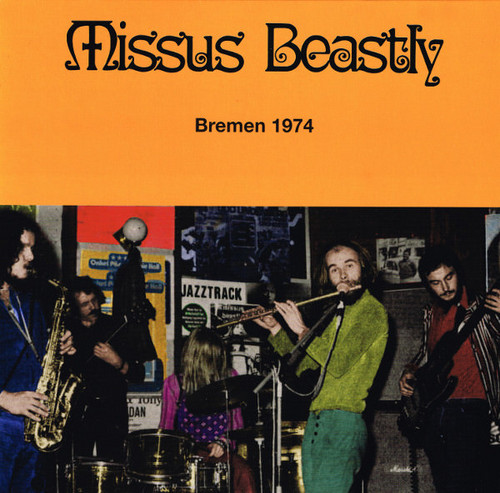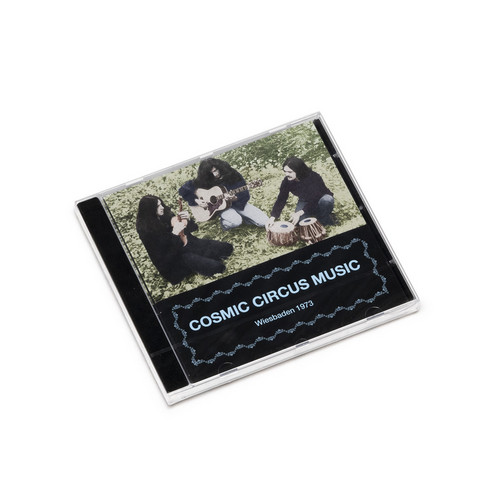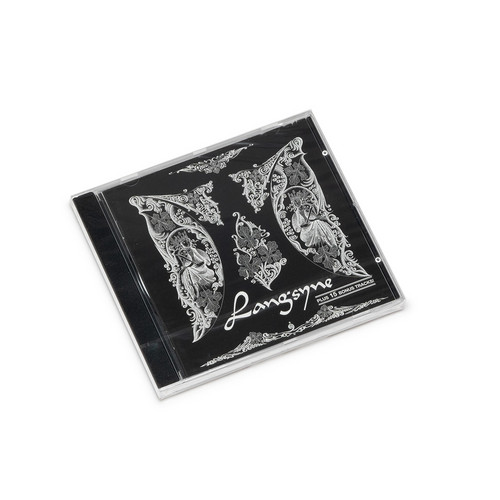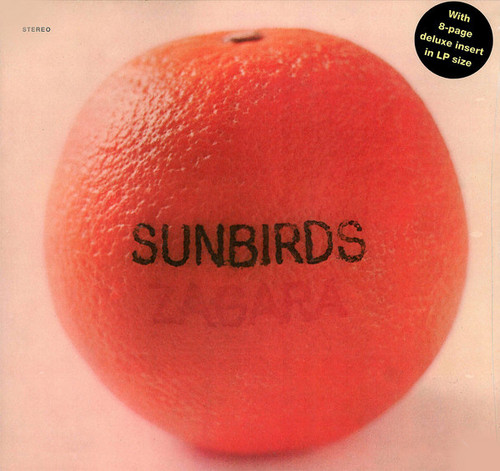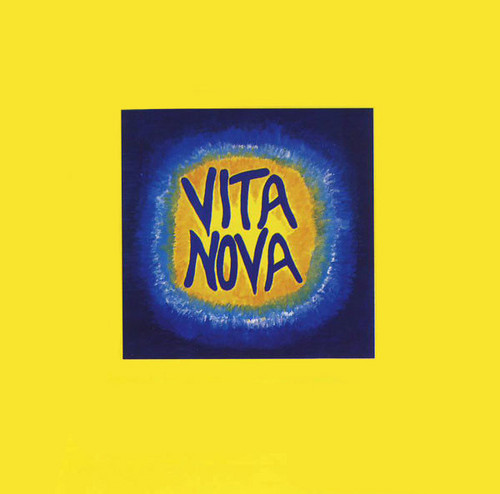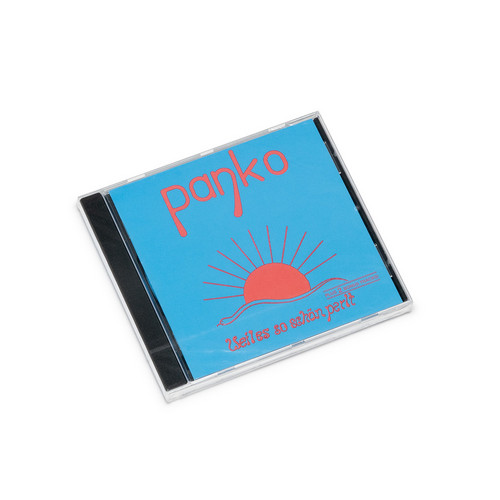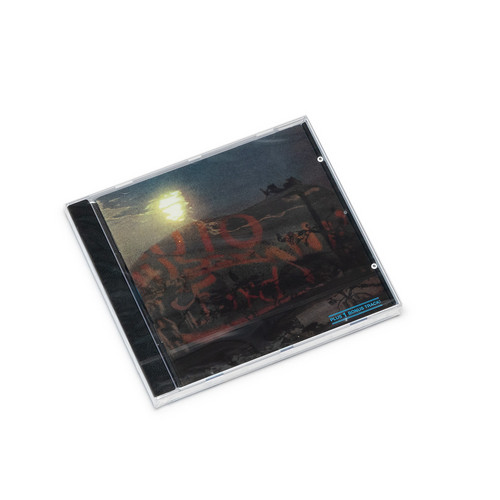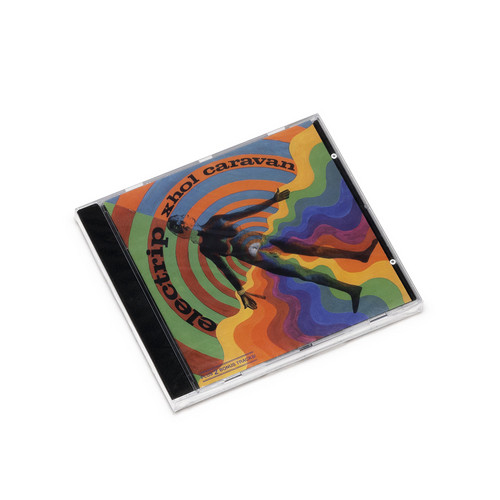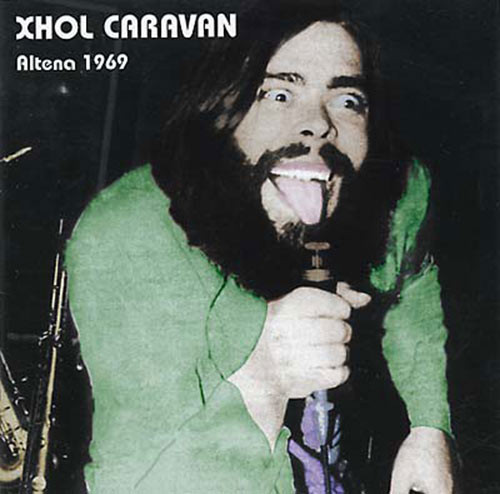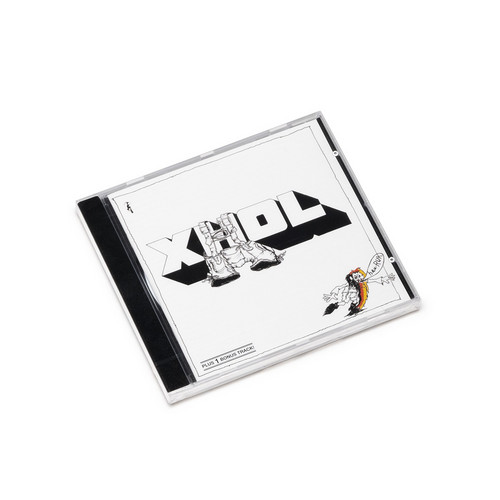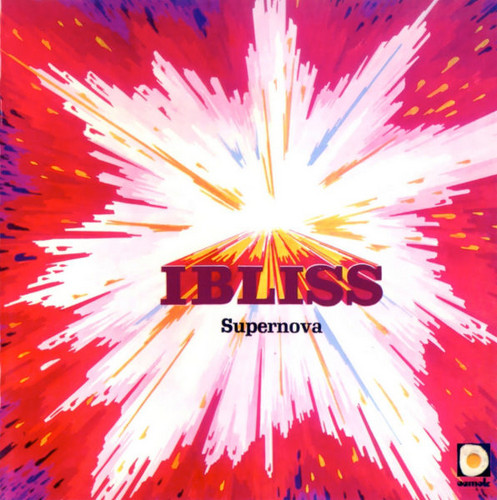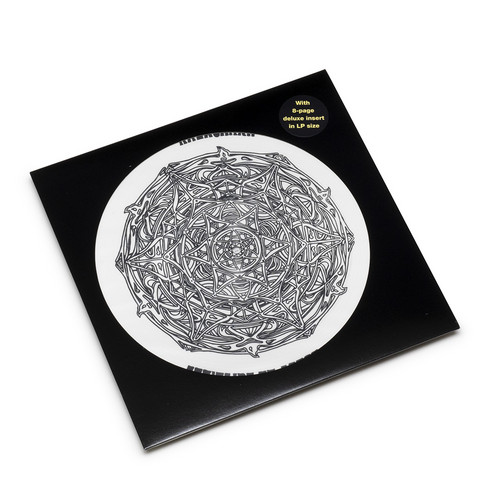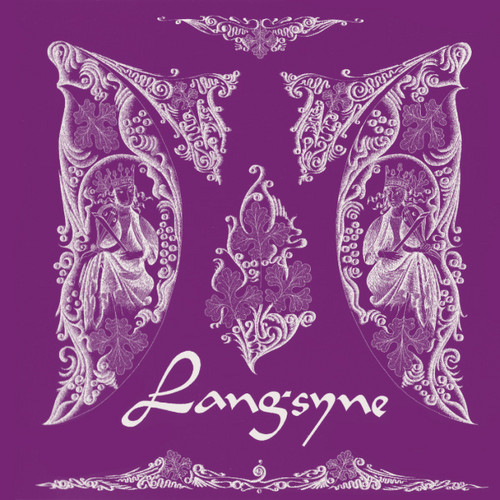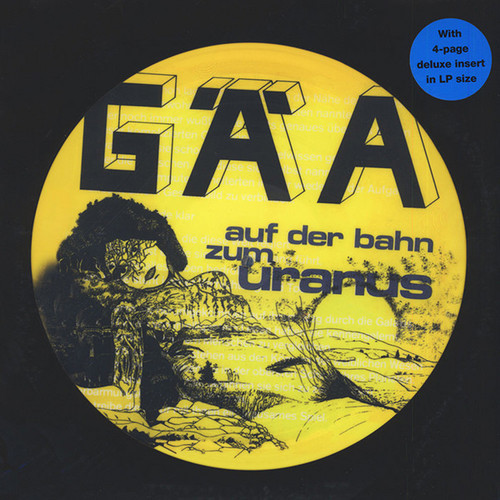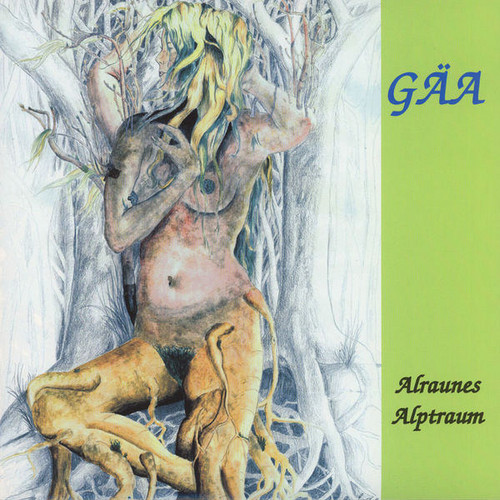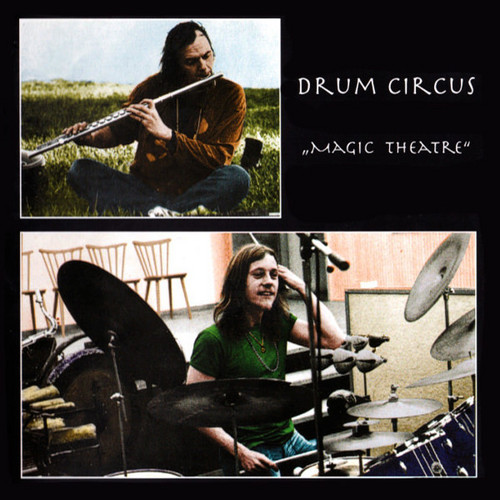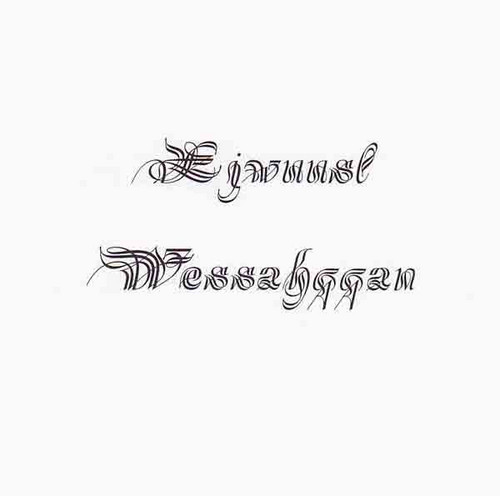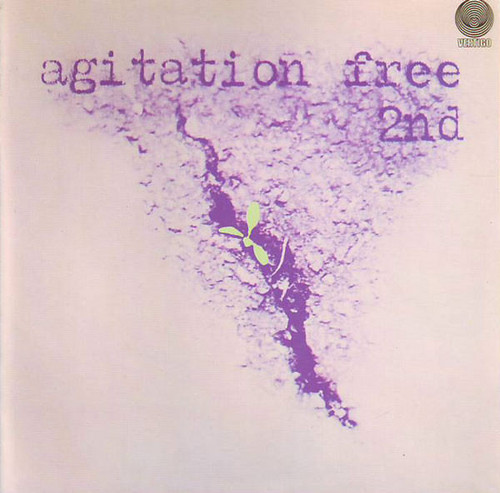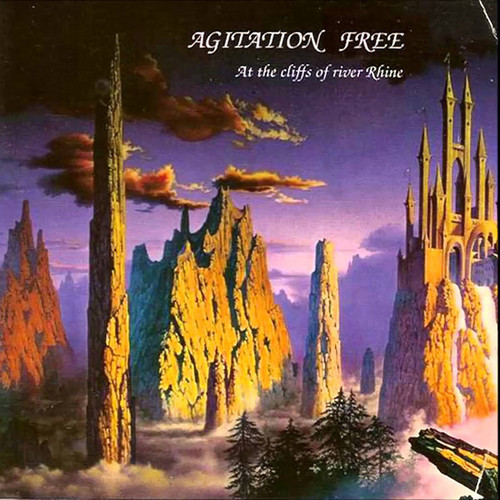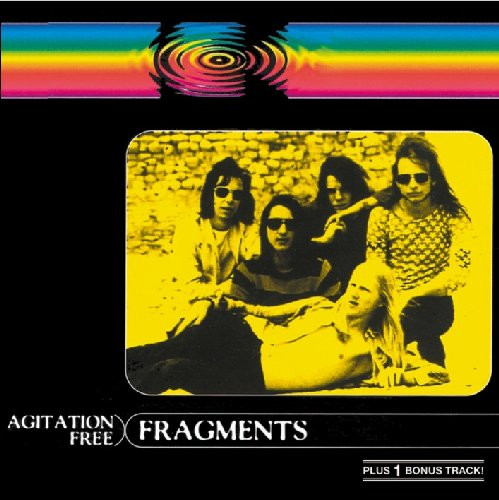★Garden of Delights
Bremen 1974
This album contains three instrumental jazz rock jams recorded by Radio Bremen in September 1974 shortly after the band had produced the second LP. Keyboarder Dieter Miekautsch had left the band towards Embryo and Eddy Maron, also known from contributions for Vita Nova and Dzyan, brings new aspects to the music - it's quite a new impression of the band. The sound quality leaves nothing to be desired by the way. A very good show documenting a new facet of the Missus Beastly band and a highlight f…
Wiesbaden 1973
Cosmic Circus Music from Goettingen played some extremely long spacey improvisations in the manner of the early Ash Ra Tempel. Despite never releasing anything officially, Cosmic Circus Music were a truly great krautrock band, arguably up there with the masters. (Though I do wish they had called themselves Kosmische Zirkus Musik for added gravitas.) The band's misfortune, relatively speaking, was that they were three years behind the times. CCM's lysergic soundscapes, which are closest in styl…
Lang'syne
**From the master tapes, with fifteen bonus tracks in top sound quality** Langsyne from Barmen (Bergisches Land region) played a subtle kind of psych-folk with a wide range of partly unusual, exotic and medieval instruments: sitar, psaltery, koto, glockenspiel, flute, etc. Especially remarkable is the instinctive assurance with which the three musicians, who understood each other without words, played their music to…
Zagara
A killer bit of jazz rock from early 70s Germany – an album that should have been right at home on the MPS label, given the sorts of all-star talents in the group! The set was produced by mighty drummer Klaus Weiss – who's at his soulful best here, able to kick things when needed, but not with as jamming a sound as on his more over the top 70s efforts – which is perfect, as the album's got loads of sweet, subtle colors from Ferdinand Povel and Leszek Zadlo on flutes, plus great electric and acou…
Vita Nova
On the top of the list of Kraut uderground artifacts, a definite oddity plenty of abstract execution of psychedelic soundscapes, dark Classical textures and Jazz/Fusion, as cohesion is completely absent, however there is a certain charm coming out of this. There are more in the vein of Egg and Amos Key, creating atmospheric soundscapes complemented with powerful jams, featuring organ and clavinet in evidence and swirling around jazzy workouts, light improvisations and mellow Kraut Rock experimen…
Weil Es So Schön Perlt
Panko Musik from West Berlin are somewhat reminiscent of Xhol Caravan or the early Embryo. They mostly presented long jazzy instrumental passages dominated by the transverse flute and alto saxophone, temporarily interrupted by mainly English vocals and some follies. The band did exist from the late sixties until the end of 1972. During their lifetime, the group didn't release anything, although they would have had the potential. Only in 1983, their drummer released the cassette tape, "Weil es so…
Sukram Gurk
Siloah were re-formed by Thom Argauer in late 1971 after their Munich hippie community had split following the release of the band’s first record. Although "Sukram Gurk" was recorded under the same elementary conditions as its predecessor and had a similar psychedelic touch, it fails a bit to achieve the sort of charisma evident in the first record. Thom now played the keyboards instead of the guitar. Re-issue from the master …
Electrip
"Psychedelic music from Wisbaden, with some jazz elements. Recorded in 1969. After the Germanofon bootleg, here is the legal re-release with a 32 page color booklet and their two 7" tracks as a bonus." First legit CD reissue of the legendary first Xhol album, first issued on Hansa in 1969. This was their first of 3 albums, Hau-Ruk and Motherfuckers GmbH & Co. would follow on the OHR label in '71/'72, concluding one of the strangest chapters in the Krautrock scene of this period. Electrip has…
Altena 1969
"Still with their black singer James Rhodes. A concert from spring 1970 in the lovely town of Altena. The cover shows sax player Tim Belbe in Charles Manson style. Good quality."
Hau-RUK
First legit reissue of the 1st Xhol album (post Xhol Caravan), originally released by the legendary OHR label in 1971. Previously bootlegged in poor fashion by Germanofon, this comes with one 22-minute bonus track (from 1974) and the usual thick booklet of liner notes and photos by Garden of Delights. This album followed Electrip and precedes Motherfuckers GMBH. One of the more confounding pieces of the Krautrock puzzle, Xhol played long, wasted lounge-blues excursions, much favored by the…
Supernova
2009 release. "With several connections to the early Kraftwerk history and formed in the Rhineland area in 1971, Ibliss was a quintet formed by percussionist Basil Hammoudi (from Organisation, the band before Kraftwerk), drummer Andreas Hohmann (also from Kraftwerk), brothers Wolfgang and Norbert Büllmeyer (bass and guitar respectively) and Rainer Büchel on sax and flute. With the help of Conny Plank, they recorded their one and only LP at Hamburg's Windrose-Studios: four long instrumental track…
Crawling To Lhasa
**Picture Disc edition with an insert of 8 pages and is also limited to 1000 hand-numbered copies.** Against its remarkable, sprawling, and lasting influence, it is hard to image the 1960’s and 70’s German sonic counterculture as it was - a truly underground music, almost entirely unknown beyond the borders of the country from which it sprang. Across the ensuing decades, this scene - among the most ambitious, rebellious, and experimental of its day, has offered an unparalleled wealth of inspirat…
Lang'syne II
The LP contains studio recordings of the legendary psych-folk band, most of which were previously unreleased on vinyl. The eight-page LP-sized insert contains a long band history in German and English, a detailed discography with all cover and label reproductions as well as many photographs. Langsyne from Barmen (Bergisches Land region) played a subtle kind of psych-folk with a wide range of partly unusual, ex…
Auf Der Bahn Zum Uranus
With deluxe four-page insert. Limited to 1000 handnumbered Picture Discs. Top sound quality. This record is frequently, deservedly listed on various "best of krautrock" lists around the Internet. That misused terms is made to stand in for just about all German progressive and electronic/experimentalist music from roughly 1969-76. Their band name derives from the ancient Greek gods, where Gaia (Latin notation: Gäa) is the goddess of the earth and fertility. The group's only LP, Auf der Bahn…
Alraunes Alptraum
Gäa from the German state of Saarland have become quite known in collectors’ circles thanks to their LP "Auf der Bahn zum Uranus" from 1974. In early 1975 they recorded three tracks for a, however, unfinished second album. They are simply brilliant and show how mature and inventive the band was at that time. The tracks have been rediscovered later and form the heart and major part of the LP, which also contains four minor bonus tracks from the 80s. Although these tracks are no longer progressive…
Magic Theatre
Founder and leader of Drum Circus from Switzerland has been the master drummer Peter Giger. 'A giant on drums', as the newspaper 'Rhein-Main-Zeitung' called him. He was joined, among others, by two additional drummers, as well as by Joel Vandroogenbroeck and Carole Muriel, both from Brainticket. Therefore, it's not surprising that 'Magic theatre', with its LSD-dripping lyrics (partly written by Timothy Leary, partly influenced by 'The Tibetan book of the dead'), reminds sometimes forceful…
Ejwuusl Wessahqqan
CD Edition. Reissue of ultra-rare 1975 German underground record. Ejwuusl Wesshaqqan were a Munich-based band acquainted to Amon Düül and with a similar style. The music certainly resonates with some of the best German stoned-out vibe, but there's a very organic sense of evolution to the music. A special characteristic of their style is the absence of vocals and guitar which were replaced by the self-made seven string filouphone. The original LP had been pressed in a limited edition of on…
2nd
Agitation Free's 2nd stands as one of Germany's finest instrumental rock albums of the 1970s and a classic for fans of progressive rock and Krautrock. Despite the fact that the group had problems keeping its cohesion at the time, these troubles never affect the music. 2nd presented a daring blend of Krautrock-type extended jams, laid-back attitude, and experimentation. The music remains very psychedelic in nature, more early Can than Faust. The presence of acoustic guitars and bouzouki emp…
At The Cliffs Of River Rhine
When the band Agitation Free came together in 1967 as a result of the merging of two Berlin rock groups, one of the most interesting groups in a dawning independent German music scene was created. With their improvisations between rock, jazz and new music, Agitation Free soon relegated to the not so flattering category of Krautrock made musical forays into areas that few of their fellow German musicians had ever penetrated. At a time when most in Germany were still orienting themselves as closel…
Fragments
Recorded in Berlin, 11/14/74 as their "final reunion" a loose jamming session featuring various members of the groups' different periods: Christoph Franke, Michael Hoenig, Lutz Ulbrich, etc. Like many acts that suffer from sounding a bit stiff in the studio, the live experience is the way to hear `em let their hair down and show how rock music can be dangerous in a way that other musical genres are often not. Trad Gras Och Stenar are another example of a band far more visceral and exciting…
